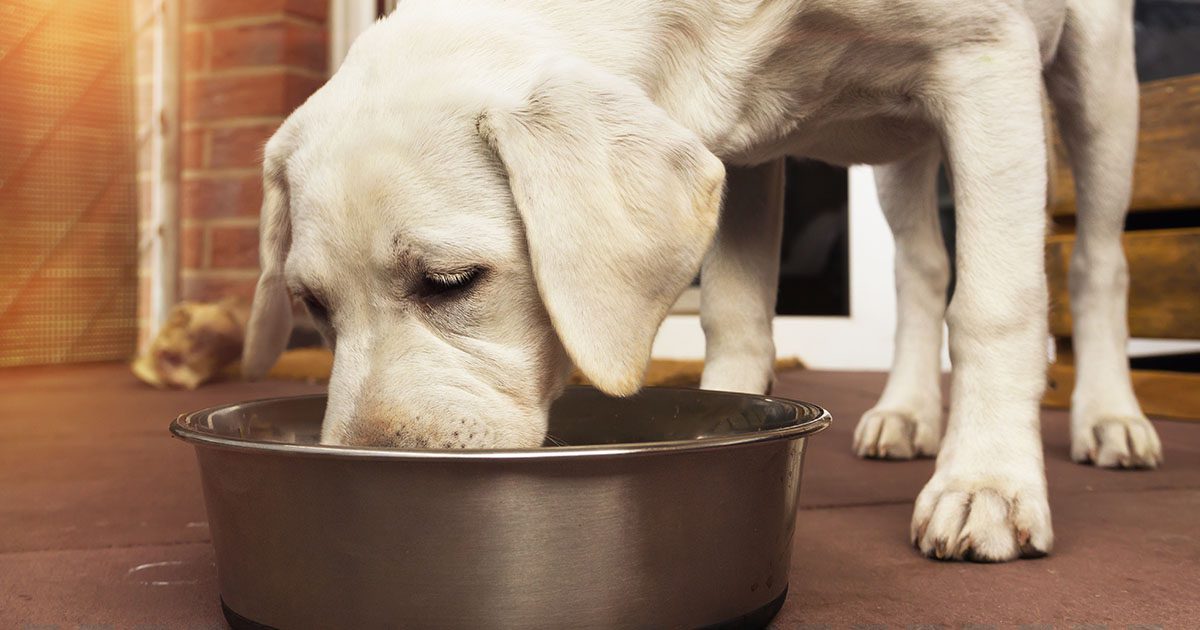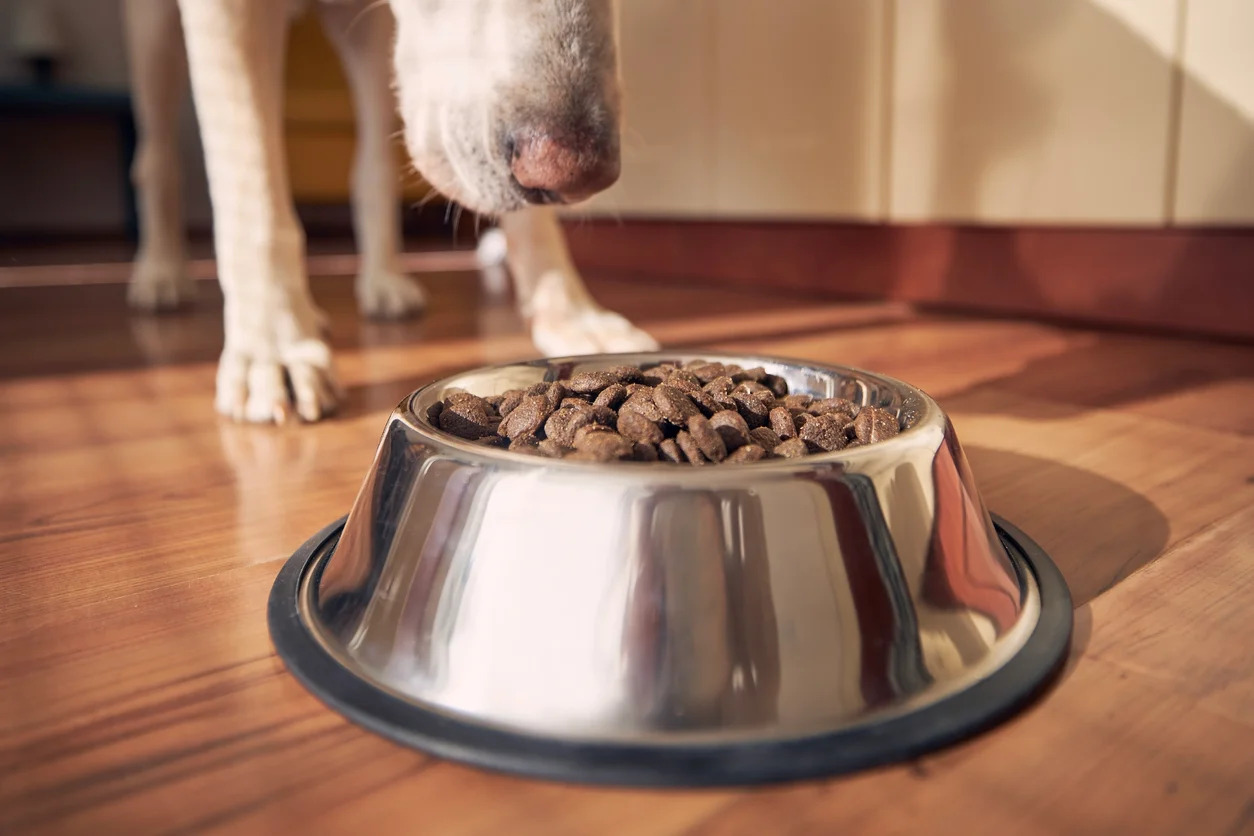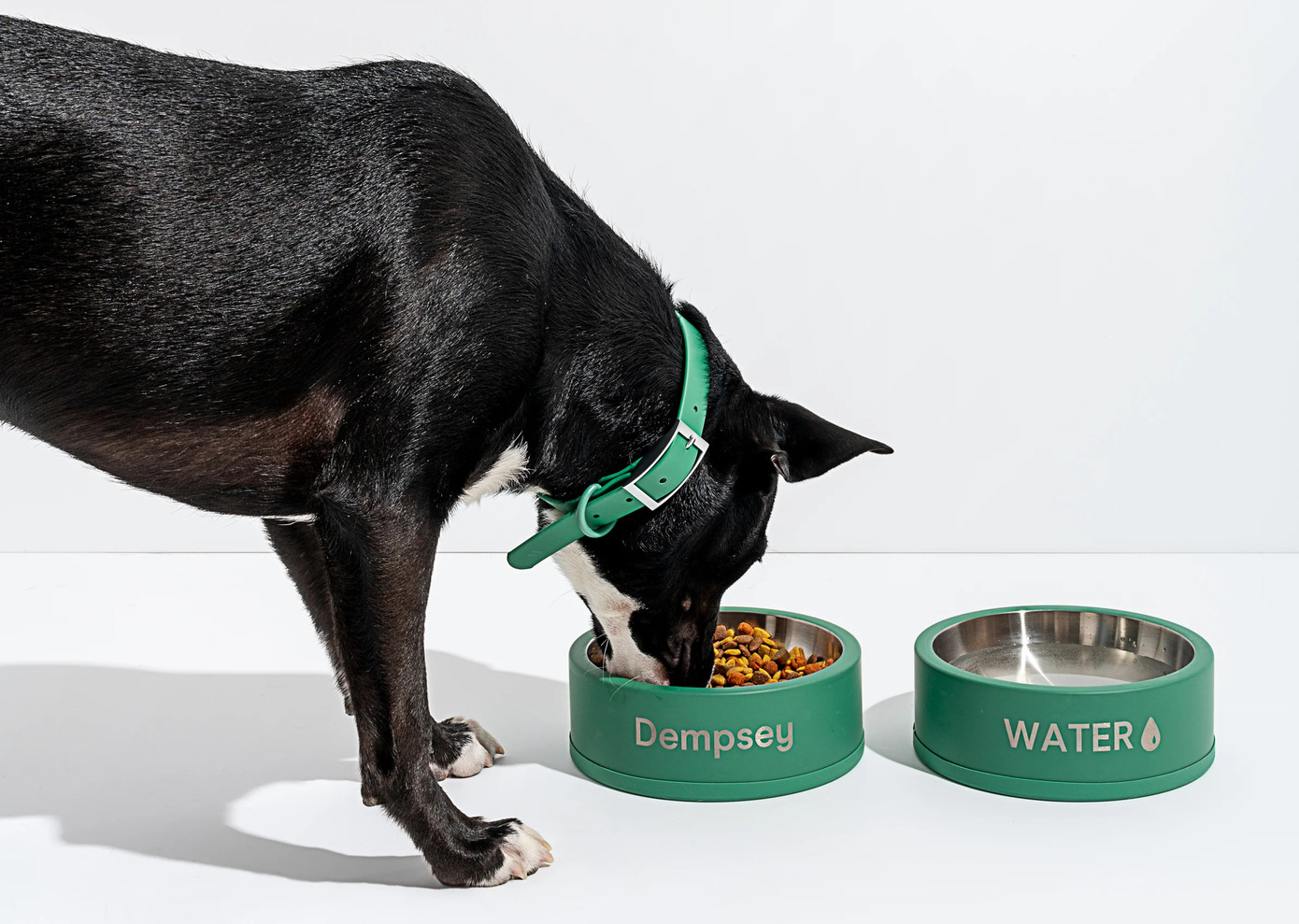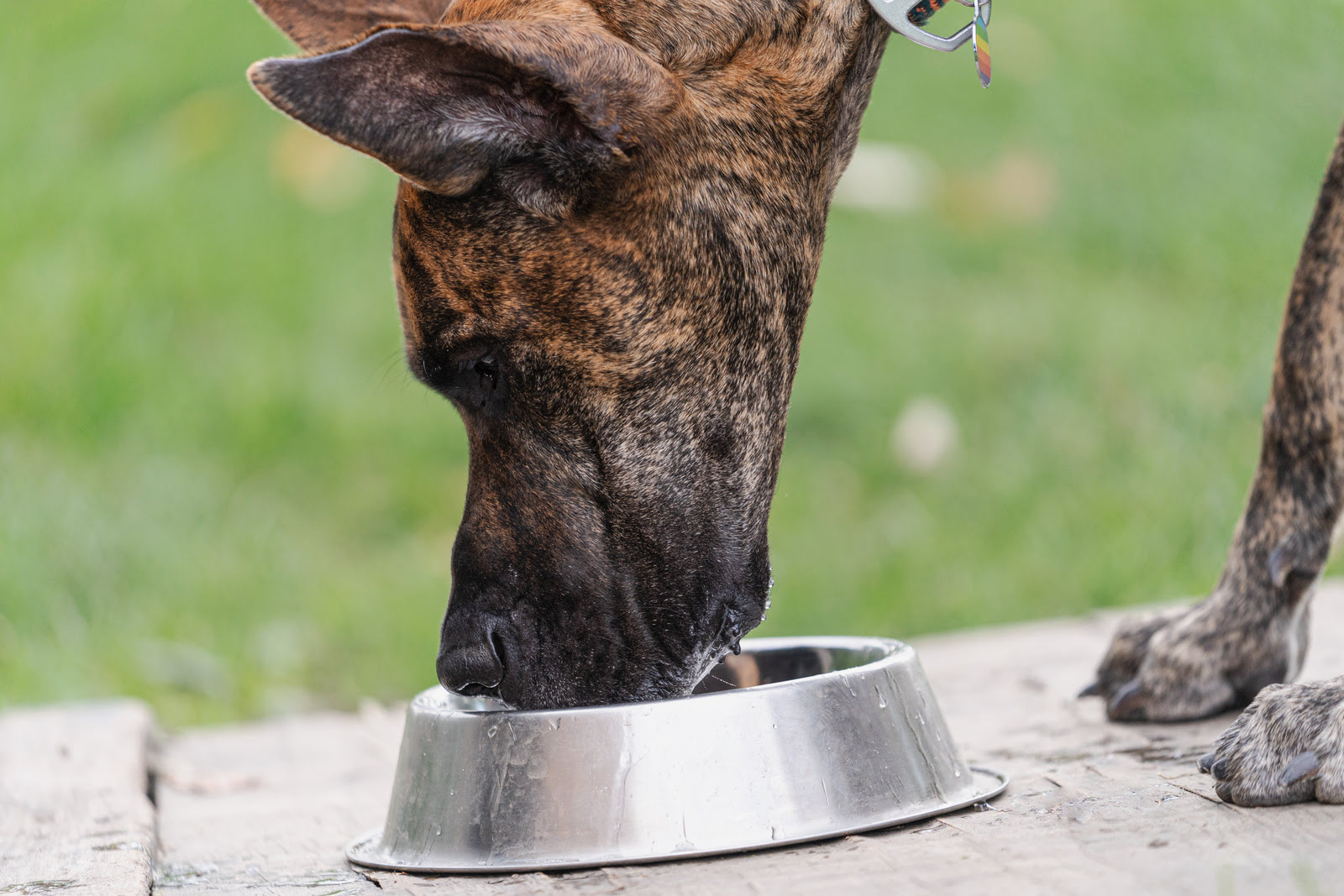Home>Health & Wellness>Behavior & Cognitive Care>What Is A Safe Dog Food To Feed My Senior Dog
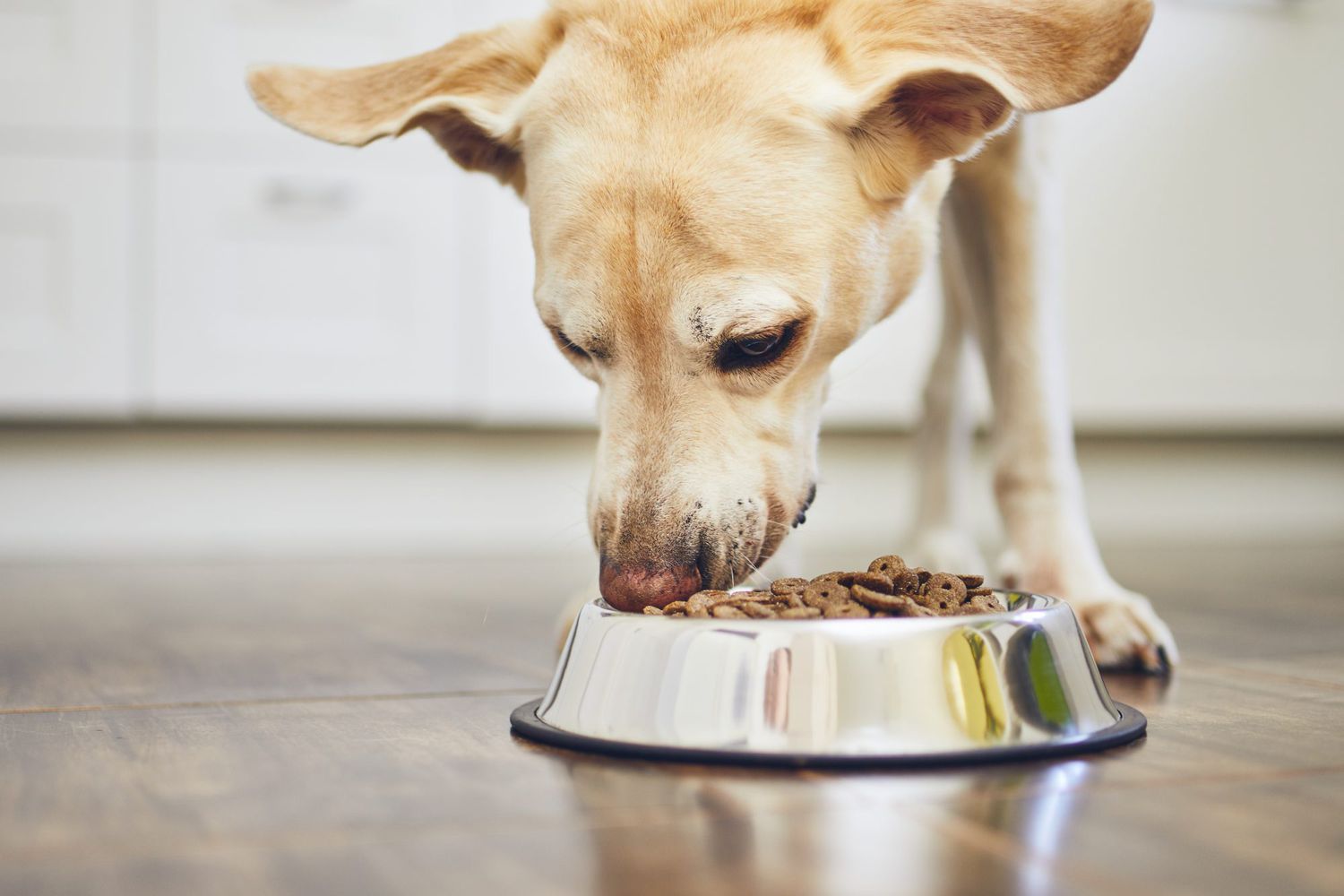

Behavior & Cognitive Care
What Is A Safe Dog Food To Feed My Senior Dog
Modified: February 21, 2024
Discover the best safe dog food for your senior dog's behavior and cognitive care. Find the ideal nutrition to support your aging pet's health and well-being.
(Many of the links in this article redirect to a specific reviewed product. Your purchase of these products through affiliate links helps to generate commission for Pawsomeoldies.com, at no extra cost. Learn more)
Table of Contents
Introduction
As our beloved canine companions age, their dietary needs undergo significant changes. Providing proper nutrition for senior dogs is crucial for maintaining their overall health and well-being. Just like humans, senior dogs experience a decline in metabolic rate and changes in their digestive system, making it essential to adjust their diet accordingly. This article aims to guide dog owners in understanding the nutritional requirements of senior dogs and making informed choices when selecting safe and beneficial food for their aging furry friends.
The aging process in dogs brings about various physiological changes, including a decrease in muscle mass, changes in metabolism, and potential development of age-related health issues. These factors necessitate a shift in dietary considerations to support their changing needs. By exploring the nutritional needs of senior dogs, common health issues they may encounter, and the essential ingredients to look for and avoid in senior dog food, dog owners can gain valuable insights into providing the best care for their aging companions.
Understanding the significance of tailored nutrition for senior dogs is the first step in ensuring their quality of life in their golden years. With the right knowledge and proactive measures, dog owners can make well-informed decisions when it comes to selecting safe and appropriate food for their senior dogs. This article will delve into the intricacies of senior dog nutrition, empowering dog owners to make choices that promote their furry friends' health and vitality as they age gracefully.
Read more: What To Feed My Senior Dog With No Teeth
Understanding the Nutritional Needs of Senior Dogs
Senior dogs have unique nutritional requirements that differ from those of younger dogs. As dogs age, their metabolism slows down, leading to decreased energy expenditure. This change necessitates a reduction in calorie intake to prevent weight gain and obesity, which can exacerbate age-related health issues. Additionally, senior dogs may experience a decline in muscle mass and bone density, making it crucial to provide adequate protein and essential nutrients to support their overall health.
Protein is a vital component of a senior dog's diet, as it aids in maintaining muscle mass and supporting organ function. High-quality protein sources, such as lean meats and fish, are essential for meeting the protein needs of senior dogs while minimizing the intake of fillers and by-products. Furthermore, older dogs may benefit from increased levels of certain nutrients, such as antioxidants and omega-3 fatty acids, to support their immune system and cognitive function.
In addition to protein, senior dogs require a well-balanced diet that includes appropriate levels of carbohydrates, fats, vitamins, and minerals. Carbohydrates provide a source of energy, while healthy fats support skin and coat health. Essential vitamins and minerals play a crucial role in maintaining overall health and supporting bodily functions, including immune system regulation and bone health.
Furthermore, senior dogs are more prone to dental issues, so the texture of their food is an important consideration. Soft or moist food can be beneficial for older dogs with dental problems or missing teeth, as it is easier for them to chew and digest. Additionally, adequate hydration is essential for senior dogs, as they may be more susceptible to dehydration due to age-related changes in their thirst drive.
Understanding the specific nutritional needs of senior dogs is essential for ensuring their well-being and longevity. By providing a balanced and tailored diet that addresses their changing requirements, dog owners can support their senior companions in maintaining optimal health and vitality as they enter their golden years. With a comprehensive understanding of senior dog nutrition, dog owners can make informed decisions when selecting the most suitable food to meet their aging furry friends' unique dietary needs.
Common Health Issues in Senior Dogs
As dogs age, they become more susceptible to a range of health issues that are commonly associated with the aging process. Understanding these potential health concerns is crucial for proactive management and early intervention to ensure the well-being of senior dogs.
One prevalent health issue in senior dogs is arthritis, a condition characterized by joint inflammation and stiffness. Aging dogs may experience degenerative changes in their joints, leading to discomfort and reduced mobility. Arthritis can significantly impact a senior dog's quality of life, making it essential for pet owners to monitor their furry companions for signs of joint pain and seek appropriate veterinary care.
Dental problems also frequently afflict senior dogs, as years of wear and tear can lead to dental issues such as periodontal disease, tooth decay, and tooth loss. Poor dental health not only causes discomfort but can also contribute to systemic health issues if left untreated. Regular dental care and a diet conducive to dental health are essential for mitigating these concerns in senior dogs.
Cognitive dysfunction, often referred to as canine cognitive dysfunction (CCD) or doggy dementia, is another common health issue in aging dogs. Senior dogs may exhibit symptoms such as disorientation, changes in sleep patterns, and decreased responsiveness, indicating cognitive decline. Recognizing the signs of cognitive dysfunction and providing appropriate support, including mental stimulation and a balanced diet, can help manage this age-related condition.
Furthermore, senior dogs are more prone to obesity, as their decreased metabolic rate and reduced activity levels can lead to weight gain if dietary adjustments are not made. Obesity in senior dogs exacerbates the risk of various health issues, including diabetes, heart disease, and joint problems. Maintaining a healthy weight through proper nutrition and regular exercise is crucial for preventing obesity-related complications in senior dogs.
Additionally, age-related conditions such as vision and hearing loss, as well as organ dysfunction, may manifest in senior dogs. Regular veterinary check-ups and proactive monitoring of any changes in sensory perception or organ function are essential for early detection and management of these issues.
By being aware of these common health issues in senior dogs, pet owners can take proactive measures to support their aging companions' well-being. Providing a nutritious diet tailored to their specific needs, regular veterinary care, and a supportive environment can significantly contribute to enhancing the quality of life for senior dogs as they navigate the challenges associated with aging.
Ingredients to Look for in Senior Dog Food
When selecting senior dog food, it's essential to prioritize ingredients that cater to the specific nutritional needs of aging dogs. High-quality protein sources, such as lean meats like chicken, turkey, and fish, are crucial for maintaining muscle mass and supporting overall health in senior dogs. These protein sources provide essential amino acids that aid in muscle maintenance and repair, contributing to the overall well-being of aging canine companions.
In addition to protein, senior dog food should contain healthy fats, including omega-3 fatty acids, which support skin and coat health and have anti-inflammatory properties. Sources of omega-3 fatty acids, such as fish oil and flaxseed, can benefit senior dogs by promoting joint health and potentially alleviating symptoms of arthritis or other age-related joint issues.
Furthermore, senior dogs can benefit from the inclusion of antioxidants in their diet to support their aging immune system and cognitive function. Ingredients such as blueberries, spinach, and carrots are rich in antioxidants and can contribute to overall health and vitality in senior dogs. These antioxidants help combat the effects of aging and support the immune system, potentially reducing the risk of age-related diseases.
Another essential component to look for in senior dog food is fiber, which aids in digestion and helps regulate bowel movements. Senior dogs may experience changes in their digestive system, making it important to include easily digestible sources of fiber, such as sweet potatoes, peas, and brown rice, in their diet. These ingredients can support gastrointestinal health and contribute to overall digestive wellness in aging dogs.
Moreover, the inclusion of joint-supporting ingredients such as glucosamine and chondroitin can be beneficial for senior dogs, especially those prone to or experiencing joint issues. These ingredients promote joint health and mobility, potentially alleviating discomfort associated with age-related conditions such as arthritis.
By prioritizing these key ingredients in senior dog food, pet owners can ensure that their aging canine companions receive the necessary nutrients to support their overall health and well-being. Selecting senior dog food with a focus on high-quality protein, healthy fats, antioxidants, fiber, and joint-supporting ingredients can contribute to the vitality and longevity of senior dogs, enabling them to age gracefully and enjoy a high quality of life in their golden years.
Ingredients to Avoid in Senior Dog Food
When selecting food for senior dogs, it is equally important to be mindful of ingredients that may have adverse effects on their health. Certain components commonly found in dog food can be detrimental to the well-being of aging dogs and should be avoided to ensure their optimal nutrition and overall health.
One key ingredient to steer clear of in senior dog food is excessive levels of fillers and by-products. Fillers, such as corn, wheat, and soy, are often used to bulk up pet food but provide limited nutritional value for senior dogs. These ingredients can contribute to digestive issues and may lead to allergies or sensitivities, particularly in aging canine companions with more delicate digestive systems.
Artificial preservatives, colors, and flavors are also best avoided in senior dog food. These additives serve no nutritional purpose and may potentially trigger adverse reactions in senior dogs. Opting for natural and minimally processed dog food can help mitigate the risk of exposing aging dogs to unnecessary synthetic additives that may compromise their well-being.
Furthermore, high levels of sodium and added sugars should be avoided in senior dog food. Excessive sodium intake can contribute to hypertension and strain the cardiovascular system, posing risks to the health of aging dogs. Similarly, added sugars can lead to weight gain and exacerbate age-related conditions such as obesity and diabetes. It is essential to prioritize dog food with minimal added sodium and no unnecessary sugars to support the overall health of senior dogs.
Additionally, ingredients such as artificial sweeteners, including xylitol, should be strictly avoided in senior dog food. Xylitol, commonly found in sugar-free products, can be toxic to dogs and may lead to severe health complications, including liver damage and hypoglycemia. Ensuring that senior dog food is free from artificial sweeteners is crucial for preventing potential harm to aging canine companions.
By being mindful of these ingredients to avoid in senior dog food, pet owners can make informed choices that prioritize the well-being of their aging furry friends. Opting for dog food free from excessive fillers, artificial additives, high sodium levels, added sugars, and artificial sweeteners can contribute to supporting the overall health and longevity of senior dogs, enabling them to thrive in their golden years.
Tips for Choosing a Safe Dog Food for Senior Dogs
When it comes to selecting safe and beneficial food for senior dogs, there are several essential considerations that can guide pet owners in making informed choices to support their aging furry companions' well-being.
-
Consult with a Veterinarian: Before making any dietary changes for a senior dog, it is crucial to consult with a veterinarian. A veterinarian can provide valuable insights into the specific nutritional needs of an aging dog based on factors such as breed, size, weight, and any existing health conditions. This professional guidance can help pet owners make informed decisions when choosing the most suitable food for their senior dogs.
-
Look for Age-Specific Formulas: Many pet food brands offer age-specific formulas tailored to the unique nutritional requirements of senior dogs. These formulas are designed to address the changing needs of aging dogs, incorporating ingredients that support joint health, cognitive function, and overall vitality. Opting for age-specific formulas can ensure that senior dogs receive the targeted nutrition necessary for their well-being.
-
Prioritize High-Quality Protein: When selecting dog food for senior dogs, prioritize options that feature high-quality protein sources as the primary ingredient. Lean meats such as chicken, turkey, and fish provide essential amino acids that support muscle maintenance and overall health in aging dogs. Avoiding fillers and by-products can help ensure that senior dogs receive adequate protein without unnecessary additives.
-
Consider Digestive Health: Aging dogs may experience changes in their digestive system, making it important to consider ingredients that support gastrointestinal health. Look for senior dog food that includes easily digestible sources of fiber, such as sweet potatoes, peas, and brown rice, to promote digestive wellness and regular bowel movements. Additionally, probiotics and prebiotics can aid in maintaining a healthy gut microbiome in senior dogs.
-
Monitor Hydration: Adequate hydration is essential for senior dogs, as they may be more prone to dehydration due to age-related changes in their thirst drive. Choosing moist or wet dog food options can contribute to their overall hydration, especially for senior dogs with dental issues or reduced water intake. Additionally, providing access to fresh water at all times is crucial for supporting their hydration needs.
By considering these tips when choosing dog food for senior dogs, pet owners can prioritize their aging companions' nutritional requirements and overall health. With a focus on age-specific formulas, high-quality protein, digestive health, and hydration, pet owners can make informed decisions that support their senior dogs in aging gracefully and enjoying a high quality of life in their golden years.
Conclusion
In conclusion, the nutritional needs of senior dogs are distinct and require careful consideration to ensure their health and well-being as they age. Understanding the specific dietary requirements of aging canine companions is essential for pet owners to make informed choices when selecting safe and beneficial food for their senior dogs.
By recognizing the importance of tailored nutrition for senior dogs, pet owners can proactively address the physiological changes that accompany the aging process. From adjusting calorie intake to prioritizing high-quality protein sources, antioxidants, and joint-supporting ingredients, providing a well-balanced diet tailored to the unique needs of senior dogs is paramount.
Moreover, being mindful of ingredients to avoid, such as excessive fillers, artificial additives, high sodium levels, added sugars, and artificial sweeteners, can contribute to safeguarding the overall health of senior dogs. By prioritizing age-specific formulas and considering factors such as digestive health and hydration, pet owners can make choices that support their aging companions' vitality and longevity.
Ultimately, the well-being of senior dogs hinges on the proactive and informed decisions made by pet owners regarding their dietary needs. By consulting with veterinarians, opting for age-specific formulas, and prioritizing high-quality ingredients, pet owners can ensure that their senior dogs receive the necessary nutrition to thrive in their golden years.
In embracing the intricacies of senior dog nutrition, pet owners demonstrate their commitment to providing the best care for their aging furry friends. With a comprehensive understanding of the nutritional needs, common health issues, and essential ingredients for senior dogs, pet owners are empowered to make choices that promote the health, vitality, and overall quality of life of their senior canine companions.
As senior dogs navigate the challenges associated with aging, they deserve the utmost care and attention, including a diet that caters to their specific needs. By prioritizing safe and beneficial food choices, pet owners can support their aging companions in aging gracefully and enjoying a fulfilling and vibrant life in their golden years.
